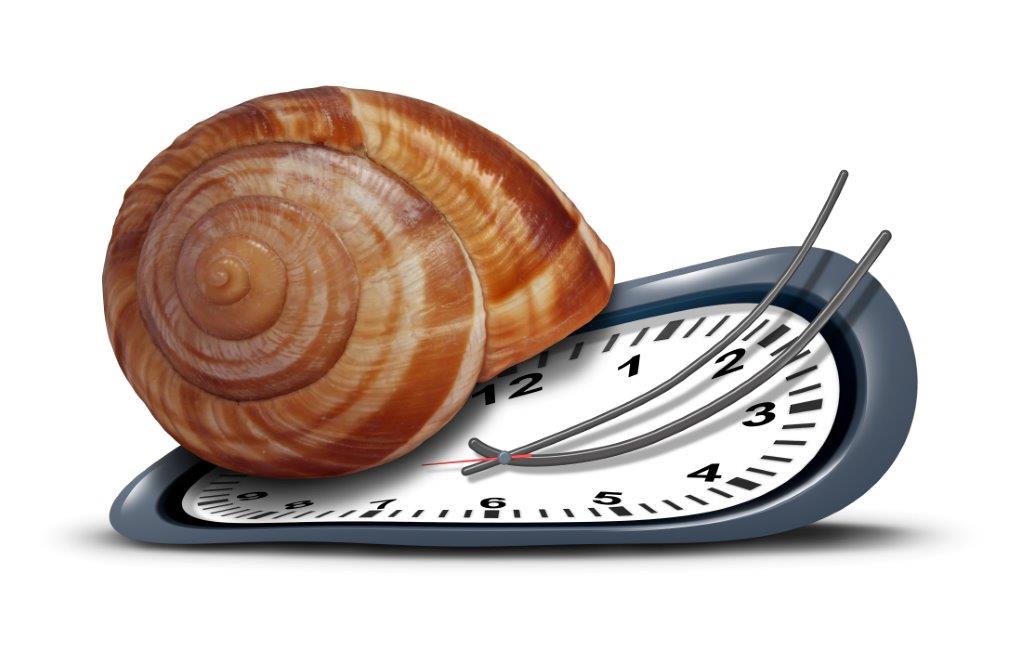Talking to business people every day, and of course running my own business, I understand many of the challenges involved in running a small business. Often the challenges are personal ones rather than related to business skills. Perhaps one of the most common is the tendency to procrastinate.
It’s not necessarily a long term habit – the constant pressure of doing and deciding, of being everything from CEO to marketing manager and chief problem solver is enough to give even the most energetic individual a touch of mental fatigue that makes getting things done more of a challenge than it might once have been.
The good news is that it can be overcome. Procrastination is largely caused by the way we think about the task and what we tell ourselves about the task. This will make the task harder or easier to start.
How are you chunking the task?
The way we ‘chunk’ a task can have a bit impact on our enthusiasm to get started. Sometimes we chunk things in a global fashion, and at other times in a more specific fashion. Ask both a global chunker and a specific chunker to buy you some bread and the way they perceive the request will be quite different:
Global chunker: “Must get some bread.”
Specific chunker: “Must find car keys, drive to the shop, find a parking spot, choose the right type of bread, queue at the checkout, then drive back home.”
In this example, the specific chunker is creating a monumental task out of something that will seem quite simple to the global chunker who is “just popping out to get some bread.”
But it’s not always the specific chunker that procrastinates.
Global to specific
Sometimes what causes our procrastination is that we are thinking too globally about the task. We think things like “That is a huge problem. I’m not going to be able to fix that by myself/in that time.” “That’s going to be a big job.” “That job is going to be a gigantic nightmare.”
These thoughts make it easier to start smaller tasks instead. Then the big task that we’ve avoided starting becomes even more of a problem in our mind. Whenever we think about it we feel guilty and the deadline looms larger. The task becomes ‘to eat an elephant.’
So how do you eat an elephant? One mouthful at a time! The solution to thinking too globally about the task is to break it into more specific bight sized steps. For example:
Step 1. Kill elephant
Step 2. Heat up wok
Step 3. Add vegetables (Not the most tasteful of examples I’ll admit!)
Now the task starts to become do-able. Perhaps a more ‘elephant friendly’ way of saying it is to quote Mother Teresa when she said “If I look at the mass, I will never act. If I look at the one, I will.”
Specific to global
At times what causes the procrastination is that we are thinking too specifically about the task. We look at our to-do list and we see that it has 173 things listed. We think things like “Where do I start?” “I will never be able to get all those things done.” “Help I’m drowning!”
These thoughts lead us to freeze up while the brain embarks on an endless debate about what to do first, debating the pros and cons of each task and trying to distinguish the endless dependencies. “Before I can do task 85 I need to have completed task 115 …”
We may even end up doing things that aren’t on the list at all just because it’s less stressful than thinking about the list.
Chances are that if we took a look at the 173 things on the to-do list we could group most of those things together into larger chunks. So the solution here is to think more globally about what you have to do. “Those ten items are all about Accounts. These 5 items are to do with filing. And these tasks are preparing the elephant for dinner …”
Once we have done this our 173 item to-do list becomes a 1 page to-do list that is now less overwhelming.
But there’s more to procrastination than whether we’re global or specific chunkers – often we do a little of both, depending on the type of task we’re faced with. In the next post we’ll look at how your familiarity or lack of familiarity with a task can impact how you feel about getting started – and what you can do to reverse the situation.
Meanwhile, next time you find yourself procrastinating, identify your thought pattern. Are you being too global or too specific? Try switching to the opposite approach to get started.
